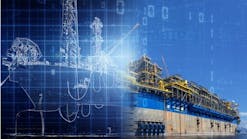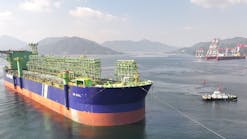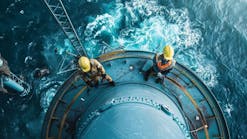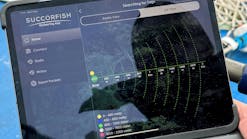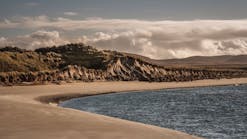Since the first oil majors started working in the North Sea, the surrounding geographical area and industry has seen considerable change. Initially, small rural communities, used to the quiet life of country living, bore the brunt of the most dramatic changes as transformations took place to turn them into major ports and rig refurbishment areas.
But, as the industry began to grow and more significant oil reserves were found, the changes that have continued to impact those involved have tended to require incremental improvements in technology, safety, and working practices.
Many of these industry changes have taken place progressively over the years - supplying more complicated technology and working practices as the need for them has arisen. However, one area of change that has traditionally suffered from a lack of foresight is that of safety, the most notable case of which were the changes that took place after the Piper Alpha tragedy in 1986.
The lessons learned during and after that day established a range of heightened safety standards and improved working practices. For the operators and drilling companies working offshore in the North Sea, much has changed, particularly with respect to the safety standards dictated for accommodation and engineering modules for use on offshore installations and mobile drilling platforms rigs.
One improvement that was implemented at that time was the requirement for all offshore installations to be upgraded to accommodate additional fire and gas detection systems, thus creating a safer working environment for offshore workers.
Temporary and permanent modular units were to be fitted with a positive pressure working area facility with gas heads linked to an alarm system and various levels of safety shutdown. Modules were also to have stepped fire ratings, dependent on their location within the installation and the level of risk that location put them under:
- A60 modules - to withstand 1 hour of a non-hydrocarbon fire
- H60 modules - to withstand 1 hour of a hydrocarbon fire
- H120 modules - to withstand 2 hours of a hydrocarbon fire.
These requirements were enforced for all accommodation, workshop and galley areas within a platform. In addition to these structural, electrical, and safety system standards, the UK Health & Safety Executive (HSE) adopted a vociferous attitude to the provision of adequate standards of accommodation for workers offshore. This approach intended to promote not only the physical safety of workers through less crowded sleeping quarters (a maximum of two per cabin), but also to improve the mental welfare of workers through reduced noise and interruptions.
Different in US
In contrast, as the Gulf of Mexico oil and gas industry starts to work in similar drilling environments, it is a well established fact that US safety standards are at a very different level to those within the North Sea.
To date, modules in the US Gulf have been subject to minimal requirements for fire and gas detection systems and welfare standards still allow cabins to cater for four people. The Marine Maritime Service and the US Coast Guard have traditionally set the standard for the Gulf of Mexico, but will it be a case of waiting for a disaster such as Piper Alpha to happen before more substantial safety criteria are implemented?
A review of safety statistics over the last 10 years has indicated that the level of safety performance offshore is relatively comparable between the Gulf of Mexico and the UK North Sea. If this is the case, it raises the question of why safety standards employed in the North Sea are of a more rigorous level than those in the Gulf of Mexico.
The North Sea has always been a harsh environment to work in and the standards in place, even from early on, took due cognizance of this fact. The events of Piper Alpha along with product and system evolution over the years have facilitated the integration and acceptance of strict safety standards.
By comparison, exploration in the Gulf of Mexico has made a gradual progression from onshore to shallow water, and then to deeper water. Is it possible, therefore, that the Gulf of Mexico's currently accepted practices are still based largely on what was acceptable onshore and that its progressive change to harsher environments has led to a certain element of lethargy with respect to the risks involved?
Some may say the lower standards in the Gulf of Mexico are a result of excessive cost reduction over the years? This is a possibility and one reason behind the differing standards that cannot be ruled out altogether. However, the global players that are already operating in the North Sea are aware of the costs that can be incurred by poor safety performance, and that by implementing even basic safety systems, losses in terms of down time can be drastically reduced.
Piper Alpha inducement
Some may argue that the inherent culture and working practices within the Gulf of Mexico are such that stringent safety standards are not required. Working safely is the norm. Others may suggest that because the Gulf of Mexico has not seen a tragedy the likes of Piper Alpha, there is a general lack of urgency to develop safety standards comparable to the North Sea. Indeed, it is often questioned whether high safety standards in the North Sea would have prevailed if the Piper Alpha disaster had not occurred. It is impossible to argue either way with any degree of certainty.
The fact remains, however, that Piper Alpha did happen and that the resulting Lord Cullen enquiry has impacted heavily the current arrangements for managing safety in the North Sea. The standards currently in place undoubtedly reduce the risk of such a tragedy taking place again and would dramatically reduce the loss of life resulting from any similar incident.
The UK North Sea has learned a great deal from the events of Piper Alpha and these lessons have been adopted, to various degrees, around the world. The level of adoption, however, is what will make the difference over the coming years.
Alex Dron
General Manager
Ferguson Seacabs Limited
This page reflects viewpoints on the political, economic, cultural, technological, and environmental issues that shape the future of the petroleum industry. Offshore Magazine invites you to share your thoughts. Send your manuscript to Beyond the Horizon, Offshore Magazine, Box 1941, Houston, TX 77251 USA. Manuscripts will not be returned.
